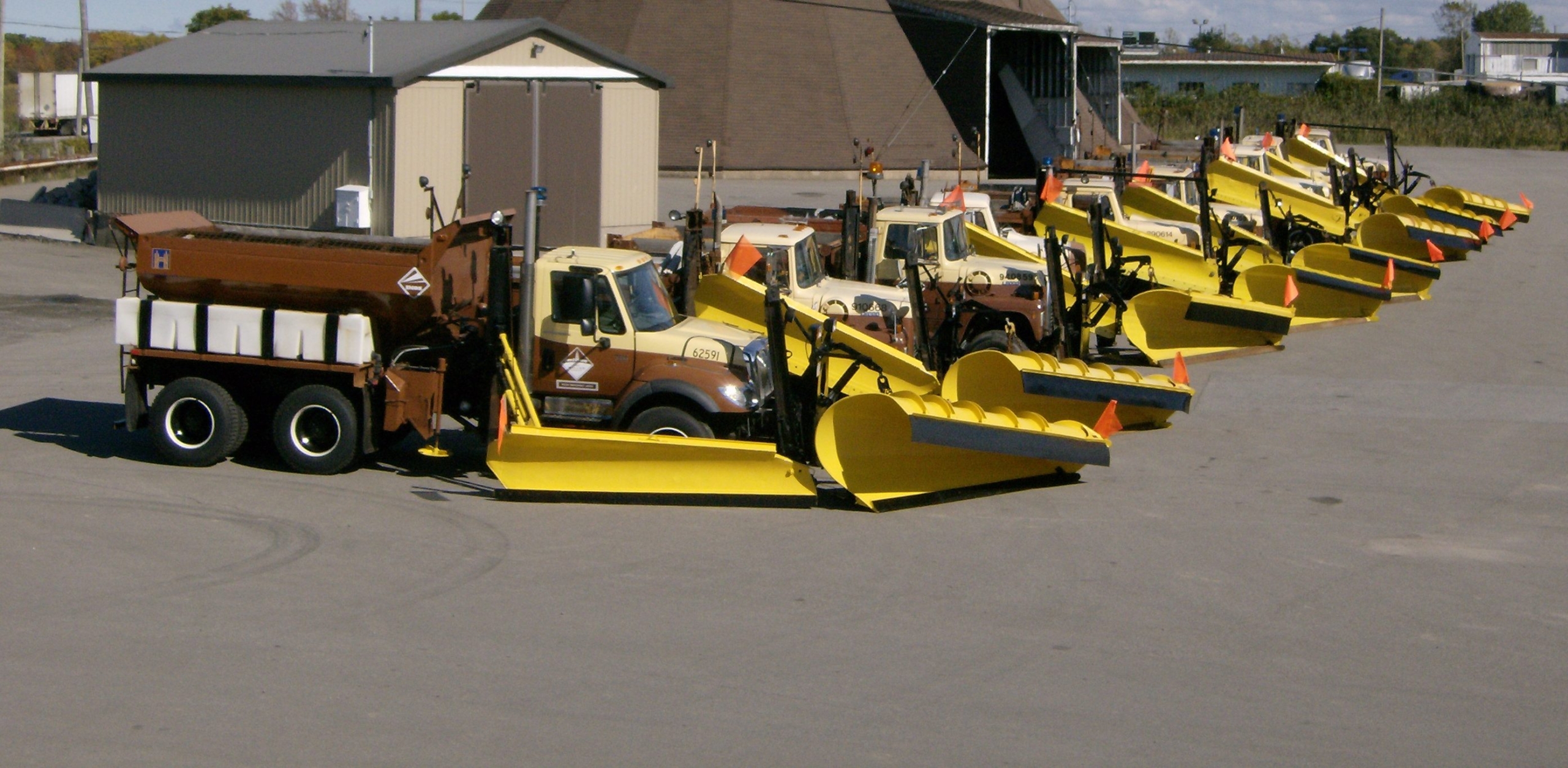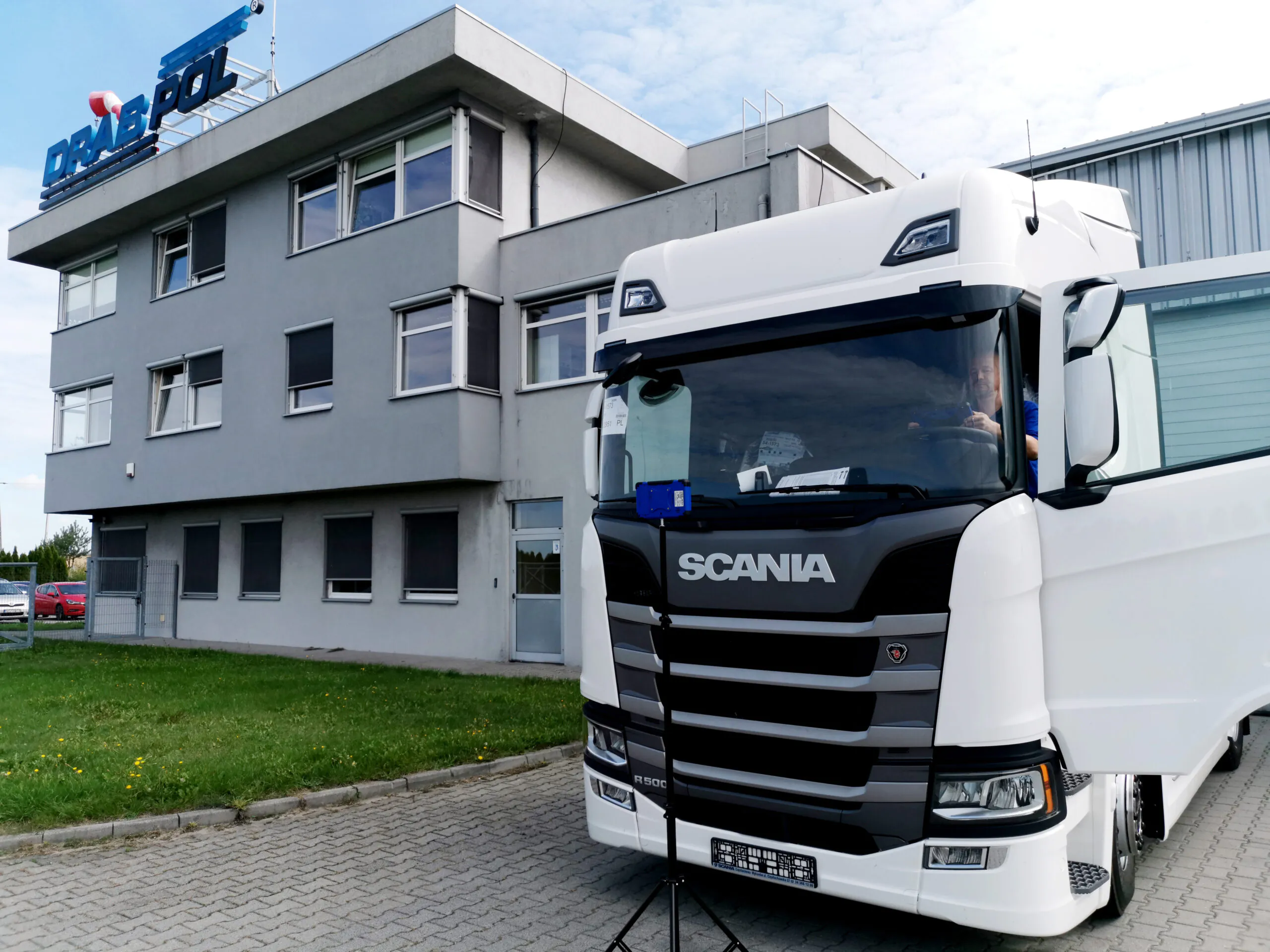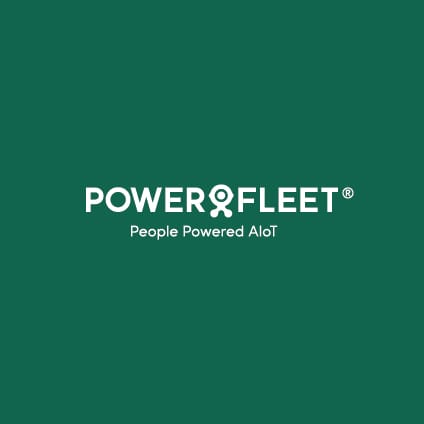
[help]
The Miller Group
Powerfleet’s AI-Powered Solutions Power Safety and Sustainability for The Miller Group’s Diverse Fleet Operations.
Powerfleet® removed risk factors and applied enforceable safety
measures for a large food manufacturing company. Each location
received technologically advanced and easily implemented processes
for worker safety and vehicle tracking. Powerfleet®’s advanced telematics digitize tracking, enabling management at any location
to monitor vehicle use and employee habits. This eliminated guesswork, provided accountability and created a new system of checks and
balances for measurable results. The company saw results in terms of a 70% decrease in accidents, an 80% decrease in damages and several hundred thousand dollars in cost savings.
Situation
Powerfleet®’s advanced telematics digitize tracking, enabling management at any location to monitor vehicle use and employee habits. This eliminated guesswork, provided accountability and created a new system of checks and balances for measurable results.
The company saw results in terms of a 70% decrease in accidents, an 80% decrease in damages and several hundred thousand dollars in cost savings.
Task
Improvements were required in the following areas:
The company has a fleet of over 150 industrial trucks, which include motorized walkie-rider pallet jacks, reach trucks and sit-down counterbalance forklifts. They required immediate help with monitoring personnel and reducing safety threats.
Action
Powerfleet® is an expert in streamlining safety operations. The intelligent designs and systems improvement transformed this company’s operations, drastically reducing risk and improving safety. The company needed a wireless telematics system designed for industrial trucks. Powerfleet® put into place:
Based on pricing, reliability and overall value, this company selected Powerfleet® as the best option on the market to implement these systems.
Powerfleet®’s services provide OEM-independent solutions over a long period of time. They implemented the above systems, many of which are patented and unique to Powerfleet® as a company.
Powerfleet’s® implementation of software and hardware happened over the course of just a few weeks.
Powerfleet Took These Steps
Results
The client reports that Powerfleet® achieved the following results:
Additional outcomes eliminated badge-sharing among employees, created a “driver break” function to prevent unauthorized vehicle use and actioned an alert system for any maintenance issues or safety violations. The combined efforts had the additional results of:
Conclusion
Powerfleet®’s patented, industrial management technology transforms drivers’ situational awareness and reduces the number of accidents. It streamlines real-time communication and eliminates false alarms. Managers can respond quickly to accidents or safety events and create proactive measures to avoid costly issues. With integrated systems, meaningful data can be collected that informs best practice and better processes for the companies who use Powerfleet®’s software and hardware.
Powerfleet transforms the way organizations manage mobile business assets — like forklifts, cargo trailers, and connected cars. Our technologies control, track, analyze, and optimize hundreds of thousands of these assets all over the world. We help organizations be safer, improve efficiency, and cut costs.
Powerfleet® provided operational support, telematics and software
systems that transformed safety and improved revenue for a global
manufacturer. Powerfleet®’s forklift fleet management and analytics provide real-time data. This protects workers by remote vehicle monitoring, maintenance alerts and reduction of costs associated with lift truck accidents. Additionally, telematics contribute to proper material handling, creating a more cost-effective and risk-free environment for large-scale production. The company deployed Powerfleet’s software and hardware at five manufacturing plants with over 800 vehicles of varying types. They achieved millions of dollars in labor costs, 80% forklift accident reduction and 100% personnel safety compliance.
Situation
A global manufacturer needed solutions for heavy manufacturing processes. These occurred in five separate locations and used about 800 vehicles, including lift trucks, tow tractors and man lifts. They needed solutions that would improve safety in material handling operations, protect workers and reduce costs.
Task
The customer needed a system that would ensure OSHA compliance,
streamline communication and improve safety. Their primary goals were:
The company had (or has) 800 material handling equipment (MHE) vehicles in five locations. Each goal would have to be achieved in different environments, with different leadership and employees.
Action
Powerfleet® sets the standard in the industry for safety enforcement and efficiency for industrial vehicles and access control systems. Powerfleet® put into place:
Powerfleet®’s systems comply with corporate and government safety
regulations. All vehicles are digitally monitored both for location and status. Drivers are accountable in their operation, which promotes safer practices.
Powerfleet Took These Steps
Powerfleet’s installed software and hardware with minimal disruption to
operations in each facility. These included:
Additionally, leadership at the company began to use Powerfleet® IQ™ Analytics to assess their systems. This source of information provided both a baseline and immediately identifiable areas for improvement which provided immediate action items for improvement in low-performing sites. They were able to reduce waste and improve operations for maximum utilization at all times.
Results
The client reports that Powerfleet® achieved the following results:
The client reports that, “Very quickly, we were able to reduce forklift damage costs over 80% and get our pre-shift checks into 100% compliance.”
Conclusion
Powerfleet®’s telematics and Powerfleet® IQ™ Analytics provided a novel source of data and improvement plans for this global manufacturer. Across numerous facilities and on hundreds of different vehicles, all of these
systems vastly improved function and streamlined processes. Operations
and personnel were improved through Powerfleet®’s sophisticated,
innovative, digital tools.
Powerfleet transforms the way organizations manage mobile business assets — like forklifts, cargo trailers, and connected cars. Our technologies control, track, analyze, and optimize hundreds of thousands of these assets all over the world. We help organizations be safer, improve efficiency, and cut costs.
Powerfleet® reduced risk and increased revenue for the customer in this case study. Innovators at Powerfleet® undertook this project for a client in automotive manufacturing by providing fleet management and analytics for five manufacturing plants. These plants had an industrial truck fleet of over 800 vehicles, including lift trucks, tow tractors and man-lifts. The work performed saved the company over $2 million a year and continues to pay off in terms of efficiency and effectiveness.
Situation
A leader in global automaking found themselves in need of improved safety measures and material handling operations. The company adheres to the highest safety standards but their ongoing self-monitoring processes indicated a need for improvement. The need extended to personnel training, systems implementation, systems management, authorization processes and equipment use monitoring.
Task
This automaker needed safety and operational improvement for two reasons:
The company is known for safety technologies. The workforce in new safety systems included people working on forklifts and other MHE. Powerfleet’s objective was to improve control over industrial truck safety policies. The work and systems implemented by Powerfleet® addressed the client’s acute and long-term needs.
Action
Powerfleet® excels in logistics, industrial telematics and vehicles. Two of Powerfleet’s tools were used in this case:
These tools provided a dual-action solution to the automaking company’s safety needs.
Powerfleet Took These Steps
Results
Powerfleet saved this client millions of dollars and put a system in place that will benefit their business in numerous ways. Results of this work included:
Conclusion
Powerfleet® is uniquely equipped to assist companies in numerous facets of this industry. Our cutting-edge technology and applied practices can improve systems and optimize efficiency. In this case, our work ensured the safety of employees and reduced costs.
Powerfleet transforms the way organizations manage mobile business assets — like forklifts, cargo trailers, and connected cars. Our technologies control, track, analyze, and optimize hundreds of thousands of these assets all over the world. We help organizations be safer, improve efficiency, and cut costs.
ReedTMS Logistics (www.reedtms.com) is a family-owned, third-party logistics provider (3PL). The company delivers a broad range of 24/7 services, including:
ReedTMS has quadrupled in size since its founding over 20 years ago. It now operates a private fleet of 85 trucks and 400 dry vans, tankers, and other trailers. With these assets, ReedTMS handles close to 100,000 shipments a year, serving hundreds of customers across a variety of industries
“Powerfleet’s solutions gave us the tools we needed to run the most efficient—and profitable—trailer fleet.”
Chad Walz
VP Operations,
ReedTMS Logistics
Like all carriers, ReedTMS wanted to move more loads to increase revenue and profits. At the same time, the company wanted to control expenses and cut unnecessary costs.
A fixed asset base of tractors, trailers, and infrastructure means fixed costs. If you can ship more freight with those assets, while managing costs, naturally you’ll earn more revenue-dollars per cost-dollar. And that, of course, equals higher profits.
ReedTMS decided that the smartest way to ship more loads, cut costs, and boost profits would be to increase asset utilization. Specifically, the company wanted to:
With 80% of its business from dedicated or semi-private fleets, ReedTMS uses trailer pools to deliver the highest level of customer service. If it could reduce the size of those pools, without affecting service, it could reduce costs. And if ReedTMS could help its customers process trailers more quickly, it could maximize the capacity of those pools. Either way, the improved asset utilization would increase profit margins.
Trailer pools are also key to make the most efficient use of drivers’ time. ReedTMS wanted to operate its fleet 20-24 hours a day by effectively managing short hauls, with a high trailer-to-truck ratio. Short hauls could keep the assets moving, without exceeding any driver’s daily ELD limit of 14 hours. As an added bonus, this approach would make drivers happier, by letting them get home at the end of each day.
One downside of trailer pools is that empty trailers can dwell at a site for too long. This impacts both costs and revenue. For example, one ReedTMS customer received four loads in for every one load out, leaving many empty trailers to manage. As a result, drivers sometimes weren’t sure which trailers were empty, or where they were located. This could cause drivers to waste time searching for empties—and hit their 14-hour ELD limit. Without a backhaul, those drivers had to stay overnight and pay for a hotel. On top of that, the idle, empty trailers lost an opportunity to generate more revenue.
ReedTMS started monitoring trailer locations with a basic Track and Trace solution from PowerFleet. This was perfect for locating missing trailers, and it quickly generated a positive return on investment (ROI). (See details under “The Results,” below.)
But to achieve the highest level of efficiency—to proactively manage trailer pools, drivers, and empties in real time—ReedTMS decided it needed an even more capable solution. So it turned to PowerFleet’s Dry Van Trailer Tracking system.
This system lets you know exactly where and when a trailer starts and stops, how long it dwells, and whether it’s loaded or empty. What ReedTMS liked most about the system was its:
To install its new trailer tracking technology, ReedTMS needed to make the most efficient use of time, so it could keep fleet utilization high. To achieve this, the company used a two-prong approach.
First, ReedTMS ordered any new trailers it needed with the Dry Van Tracking System pre-installed. PowerFleet worked directly with the trailer OEMs to make this process smooth and reliable.
Second, for its existing trailers, ReedTMS installed Dry Van Tracking devices during normal planned maintenance (PMs). Fortunately, at most, the devices take only 60-90 minutes to install. So mounting them didn’t overload resources or delay the trailers from getting back on the road.
As an added level of support, PowerFleet integrated its web-based Powerfleet IQ™ asset tracking software with the McLeod software that ReedTMS already used for dispatching. As a result, ReedTMS could see—in real time—trailer distance from landmarks, dwell times of idle trailers, “dropped balls” in the dispatch process, and much more. Ultimately, these combined systems will proactively match dispatch orders with live trailer locations, which will prevent dispatch errors from occurring in the first place.
In addition, PowerFleet introduced ReedTMS to its Powerfleet IQ™ Analytics platform. This “big data” application crunches numbers from multiple sources to uncover deeper insights into operations. For example, ReedTMS plans to use FleetView IQ to integrate its trailer tracking and dispatch systems with ELOG, GPS, ELD and engine data from its tractor management system.
“From finding lost trailers and right-sizing our trailer pools to reducing new trailer buys, our tracking system has added over $1 million to our bottom line.”
Chad Walz
VP Operations,
ReedTMS Logistics
Initially, the value of trailer tracking for ReedTMS was simply in finding trailers. For example, one customer would share trailers with different carriers, which sometimes resulted in a misplaced unit. Tracking the location of these “lost” trailers enabled ReedTMS to recover them easily. That alone saved the company hundreds of thousands of dollars in capital costs. Not to mention the cost of man-hours (and aggravation) it would have spent filing insurance claims.
But by switching to the Dry Van Trailer Tracking system—with its advanced cargo and load sensing, as well as “live” trailer location tracking—ReedTMS has been able to do (and save) much more:
The Powerfleet IQ software report that ReedTMS uses the most is an “Idle Trailer Summary.” It shows how long a trailer has been sitting still. Focusing on this data has helped ReedTMS reduce dwell time significantly. Management believes it can cut the average down to as little as 5 days.
ReedTMS uses this data to proactively manage customers and increase asset utilization. For example, if a loaded trailer remains at a customer site too long, ReedTMS will ask the customer to prioritize shipment, or charge the customer a storage fee. On the other hand, if a trailer in a customer’s dedicated pool sits empty on a regular basis, ReedTMS will pull the asset to use elsewhere and charge the customer less for the smaller pool.
By using advanced asset tracking technology, ReedTMS has been able to proactively manage its trailer pools, drivers, and empties—and improve dispatch efficiency. This visibility and control has helped the company increase asset utilization, reduce costs, and achieve its goals for revenue-per-asset.
ReedTMS now spends much less time waiting to pick up loaded trailers, unload trailers after delivery, and put empty trailers back into service.
“The key to our business is asset allocation and utilization, and I.D. Systems’ Logistics Visibility Solutions gave us the tools we needed to run the most efficient—and profitable—trailer fleet,” said Chad Walz, Vice President of Operations for ReedTMS Logistics. “From finding lost trailers and right-sizing our trailer pools to reducing new trailer buys, our tracking system has added over $1 million to our bottom line.”
Powerfleet transforms the way organizations manage mobile business assets — like forklifts, cargo trailers, and connected cars. Our technologies control, track, analyze, and optimize hundreds of thousands of these assets all over the world. We help organizations be safer, improve efficiency, and cut costs.

[help]
Powerfleet’s AI-Powered Solutions Power Safety and Sustainability for The Miller Group’s Diverse Fleet Operations.

[help]
Powerfleet and DrabPol SP: Driving Safer Roads and Smarter Fleet Solutions in Poland and Ukraine

[help]
Learn more About How Powerfleet EasyCheck Enhances Fleet Safety, compliance and Uptime.

[help]
Powerfleet’s Pedestrian Proximity Detection uses intelligent cameras to identify people and vehicles in industrial environments, helping to prevent accidents before they happen. The system provides alerts without requiring special apparel and delivers actionable analytics to enhance workplace safety.

[help]
In this testimonial video, learn how our integrated system enables real-time visibility of forklift activities, enhances safety protocols, and provides actionable data for better operational decision-making and resource planning

[help]
Unity is Powerfleet’s robust end-to-end AIoT data highway. It unifies operations to transform business performance across key market drivers, keeping businesses operating safely, compliantly, and sustainably.

[help]
Powerfleet Solutions Drive Swans Travel Limited’s Commitment to Safer Roads and Reduced Emissions.

[help]
As a construction dealer, you play a pivotal role within this dynamic industry. Elevate Your Construction Dealership with Enhanced Operational Performance

[help]
The Powered Asset Gateway is an asset tracking solution that offers continuous, real-time visibility while in transit

[help]
The Unity ecosystem streamlines your data, giving you near real-time, decision-grade insights that connect your assets, vehicles, and people—all under one roof.